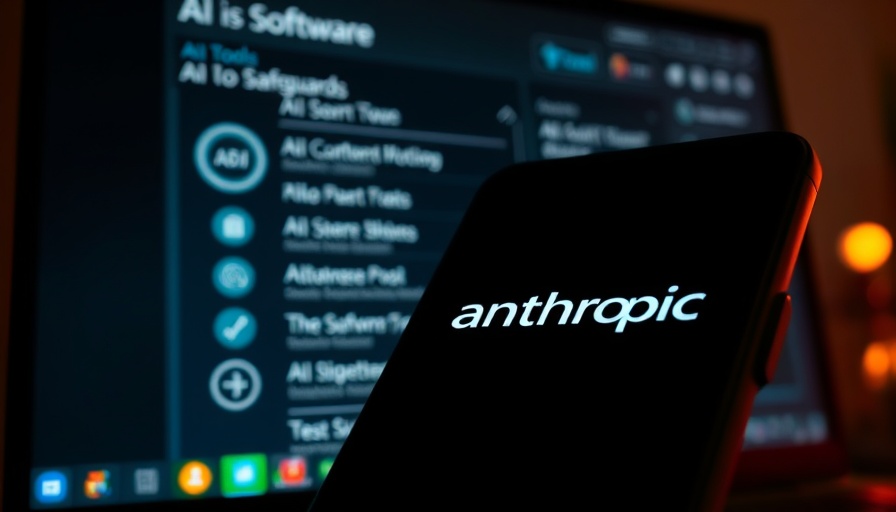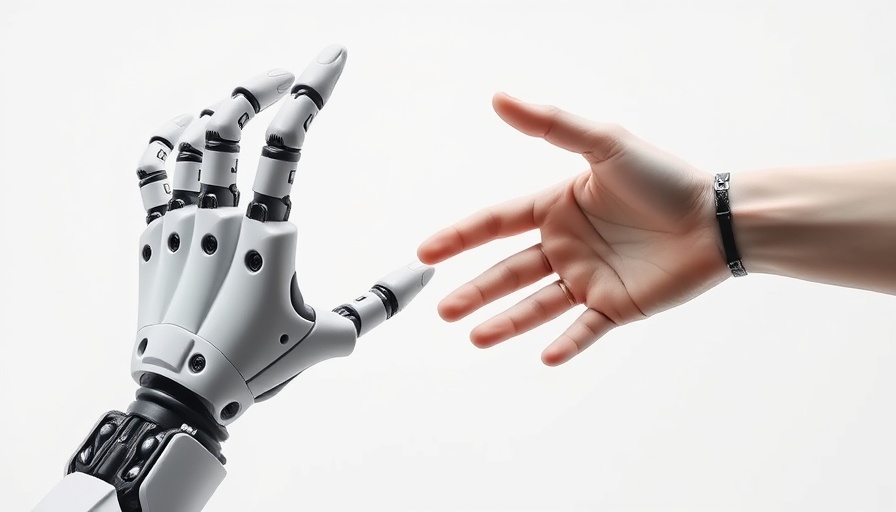
Understanding the New Safety Mechanism in Claude Opus 4
Anthropic’s Claude Opus 4 and Opus 4.1 have made headlines with a significant update to their chat systems, introducing a safeguard designed to end conversations under certain extreme conditions. This safeguard operates as a last resort after repeated warnings and failed attempts to steer the conversation away from harmful or abusive content. This move signals a proactive step towards pathing a responsible AI that not only engages with users but also protects them from harmful interactions.
Why This Feature Matters: Prioritizing User Safety
The newly implemented safeguard works by assessing persistent harmful behavior before deciding to end a conversation. Users will notice that Claude can no longer engage with repeated harmful requests, such as those involving sensitive content or instructions that might lead to real-world violence. It is crucial to note that if a user explicitly asks to end the chat, Opus will comply. Also, in scenarios where users may be in crisis or looking to self-harm, Claude will continue offering support and guidance, thus prioritizing the well-being of users and keeping the lines of communication open.
How Does Claude Manage to Keep Conversations Safe?
The mechanism Claude employs is structured in a sequence. Initially, the model will first refuse harmful requests and strive to redirect the user toward more constructive topics. If harmful behavior persists, only then will Claude take the step of locking the thread to prevent further interaction. This 'hard stop' approach is particularly notable since most AI assistants typically rely on softer refusals without the capability to entirely halt a conversation. With this enhancement, Claude sets a new standard for responsiveness and ethical guidelines in AI communication.
Addressing Concerns and Ethical Implications
Anthropic’s cautious approach relates to a broader discussion around AI's moral implications and welfare. The decision to implement such a feature arose from considerations regarding model welfare and the ethical responsibility to prevent AI from becoming a platform for unhealthy interactions. Rather than marking an advent of heightened AI consciousness, these safeguards reiterate the importance of ensuring that AI tools meet ethical standards while providing utility to users.
Future Innovations in AI: What Lies Ahead?
This innovative safety feature may hint at future developments in AI tools, particularly within chat interfaces and customer service applications. As businesses increasingly integrate AI tools for customer engagement, it becomes vital to build technology that not only supports productivity but also safeguards well-being. This new model of engagement may inspire others to prioritize not just efficiency, but also the safety of users across various tech tools.
Why Understanding Chat AI Behaviors Is Important for Businesses
For developers and business owners, understanding these changes in AI functionalities can pave the way for better engagement strategies with customers. Knowing how AI can handle different conversation scenarios may influence decisions regarding AI integration in business communication or customer support. With the rise of AI platforms and tools, ensuring user safety while optimizing performance can lead to decreased risk and higher customer satisfaction.
Take Action: Explore AI Safeguards for Your Business
As AI continues to evolve, it's essential to stay informed about the latest advancements and implement best practices that enhance user experience while prioritizing safety. Consider integrating AI platforms that emphasize ethical interaction as companies shaping the future of technology. If you are keen on leveraging AI for your business operations, explore tools that offer robust safeguards, ensuring you maintain both productivity and user trust in your interactions.
 Add Row
Add Row  Add
Add 




Write A Comment